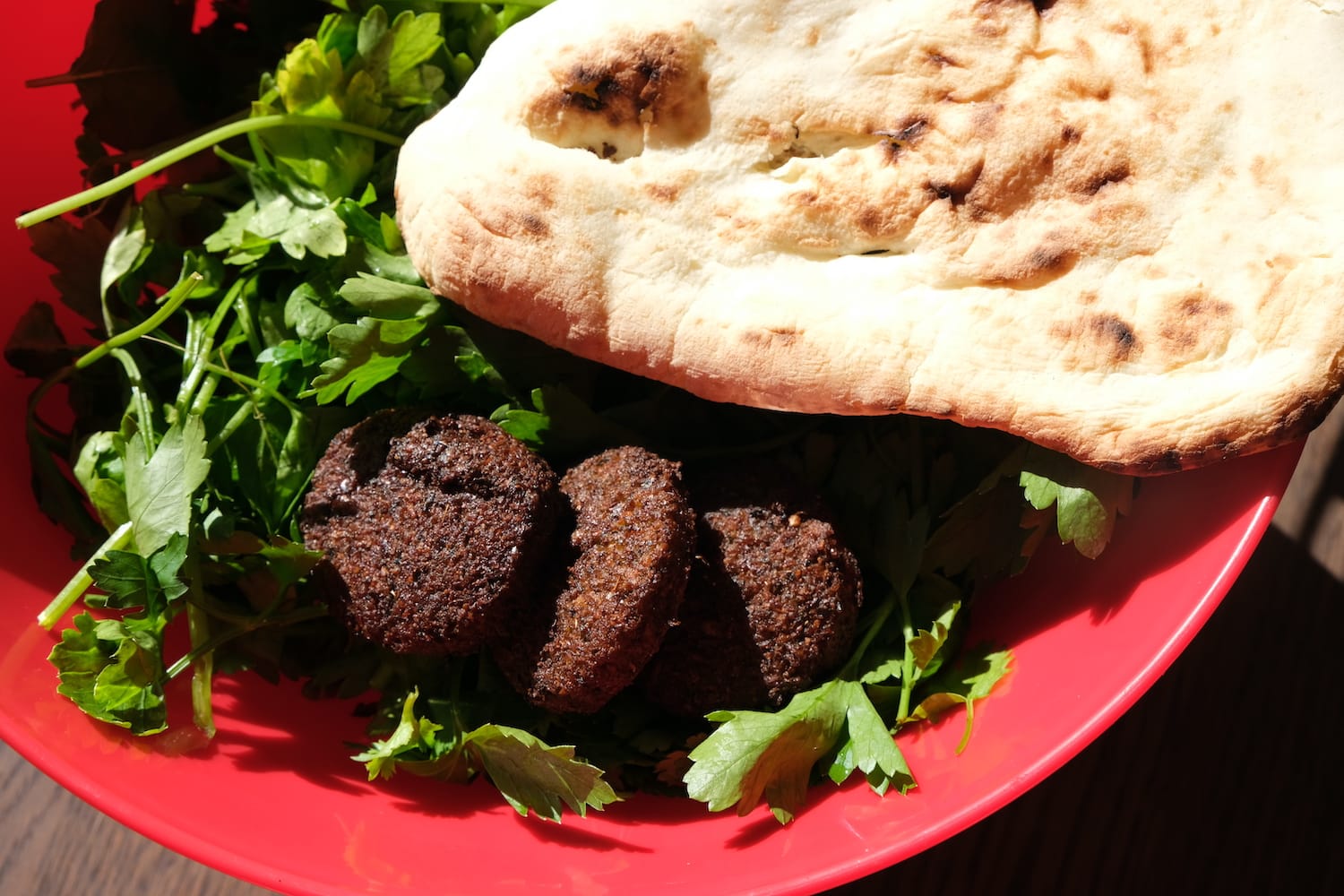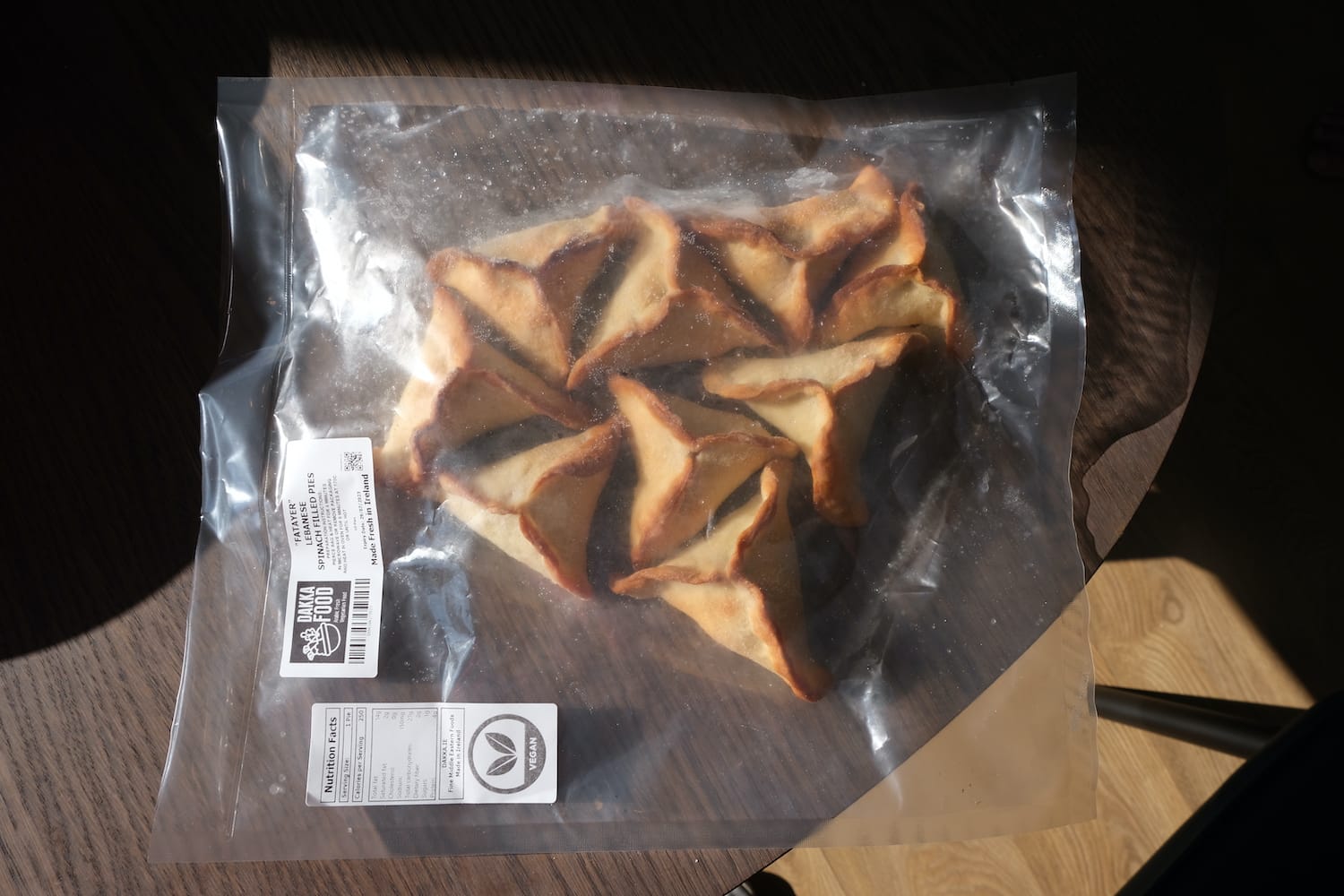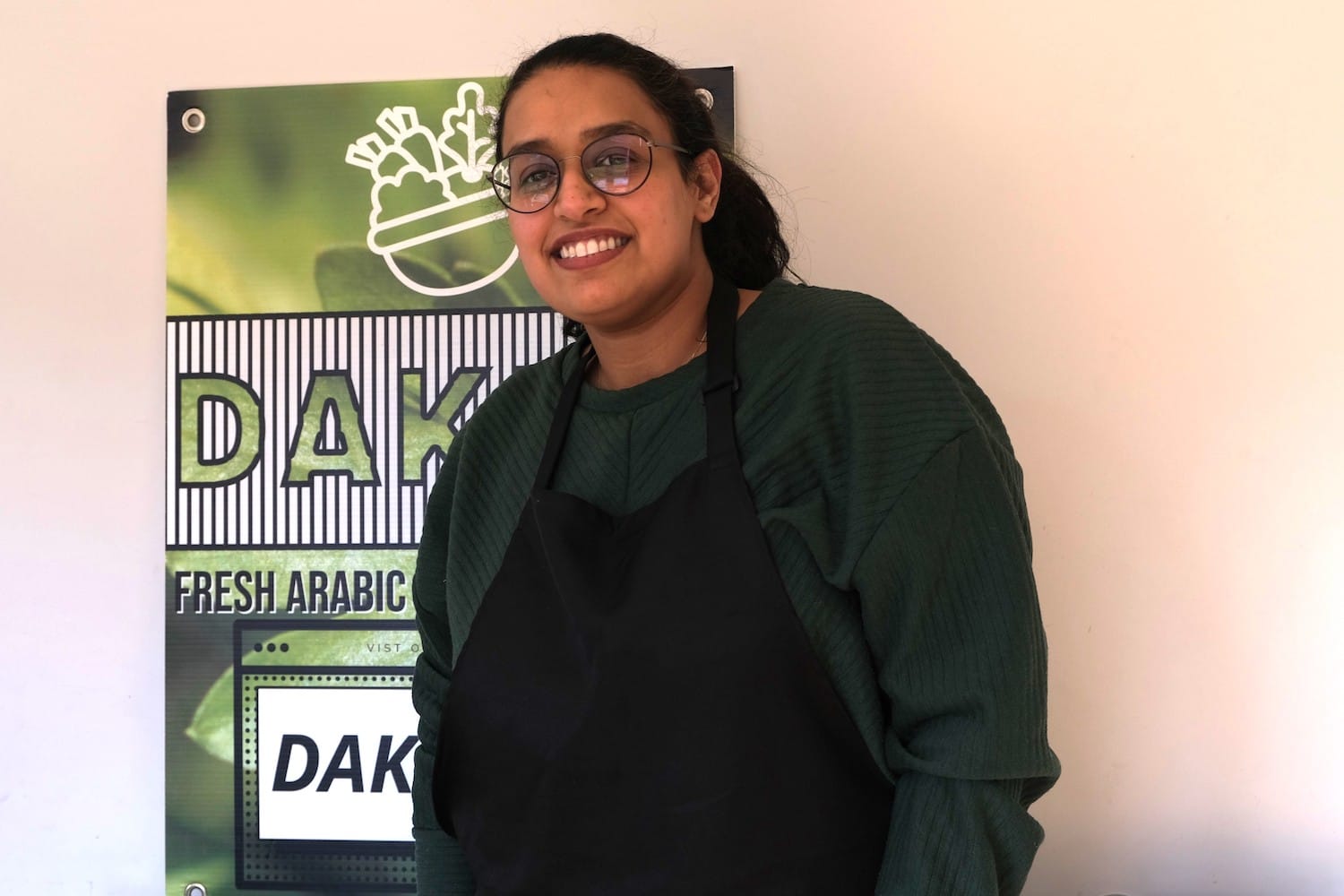What’s the best way to tell area residents about plans for a new asylum shelter nearby?
The government should tell communities directly about plans for new asylum shelters, some activists and politicians say.
“The traditional-style handmade work we do translates into products that you cannot easily find,” says Abdulaziz Almoayyad.

At a few minutes past 5pm on a recent Saturday, Abdulaziz Almoayyad, Noura Baghanem and two employees are just finishing up a big order.
Standing around their small but modern stove, they all take turns stirring pots, ladling hummus and spooning falafel from the oil into containers to go.
The family kitchen has the necessary appliances: microwave, oven, fridge, stove, blender. Countertops and cabinets at the end of the room sit in a neat line.
Pans sizzle, and there’s the smell of crispy broad-bean falafel, and a glide of black aprons and hairnets
It’s just been seven months since Almoayyad and Baghanem launched a food start-up in their home, a red-brick with a blue door in a housing estate in Citywest.
The couple moved to Ireland from Saudi Arabia nine years ago. But they found themselves missing the food, says Almoayyad – and not just the dishes, but the freshness and the lack of pretension.
Almoayyad had a family restaurant back home, he says.
Dakka Food, as they’ve named their new business, is focused on vegetarian food. “Middle Eastern cuisine has a rich heritage with vegetarian dishes,” Almoayyad says.
His experience in his homeland’s food industry and their traditional recipes are the heart of what they offer, he says. “The traditional-style handmade work we do translates into products that you cannot easily find.”
On Saturday 3 June, the team is putting together a big order for a new customer.
The shift started at 9am. By 5pm, they have counted 120 spinach pies, 80 pieces of broad-bean falafel and 2kg of hummus – all about to be delivered.
The Dakka Food menu has much more on it.
One dish is kushari, a street food from Egypt. Known as the “meat of the poor”, it’s a mix of lentils, rice and pasta topped with tomato sauce, vinegar, garlic and crispy fried onions, says Almoayyad.
“It’s like eating a full meal, you feel satiated, you get the crunch of the onions, you get different textures and a zesty taste,” says Almoayyad.
There’s also shafoot, foul, hummus, falafel and fatayer. And basboussa, a semolina cake soaked in syrup.



Shafoot is a salad quite particular to Yemen. It’s made out of lahoh, which is a sourdough pancake-looking flat bread, alongside yogurt, and zhug – a green hot sauce with chili pepper, garlic and coriander – and Irish leeks.
“All these get mixed in the blender until it becomes like a green sauce, then you make layers of bread and your sauce and, to finish it, pomegranate or diced cucumber,” Almoayyad says.
The cucumber is crunchy, the pomegranate is sweet, and the sour bread fluffy.
“When people try it for the first time, it really strikes them,” he says. “It’s one of our most beloved dishes.”
Their dishes lean towards street food. “We think street food is a very unique way to build that bridge between different cultures,” he said.
“If you pay attention to street food, they usually use what’s in season, what’s in season tastes better and costs less,” he said.
They build that bridge themselves first: in their kitchen, Irish produce is turned into Middle Eastern dishes.
That’s why even in traditional recipes you will find different kinds of vegetables, food, or ingredients. “So we work with seasonal vegetables as a base for our menu,” he said.
Almoayyad and Baghanem cater events, sell frozen products at independent grocery stories – like Mini India, Bombay Bazaar and Flavour Food Market – and also have a lunch box available through the “Too Good to Go” app.
In the following days, they plan to launch “The Taste of Egypt Dinner Bag” featuring kushari, hummus and basboussa, all in one.
Like many people dipping into the food business, Almoayyad and Baghanem have to balance morning jobs and their new enterprise.

“Building a business for us is not just about our family but we want to be helping our community too,” says Almoayyad.
They’ve committed themselves to trying to reach a “one to one” system – one meal sold equals one meal fed to the hungry.
In Dublin, they collaborate with the Muslim Sisters of Éire providing food monthly.
Dakka means “bench” in Arabic – the kind of bench on a porch where you sit in good weather. It’s not just furniture that they are trying to invoke, though, but the community spirit it brings, says Almoayyad.
“It’s us saying we are part of the community,” says Almoayyad. Like an invitation that says, you’re welcome on my bench.
Get our latest headlines in one of them, and recommendations for things to do in Dublin in the other.